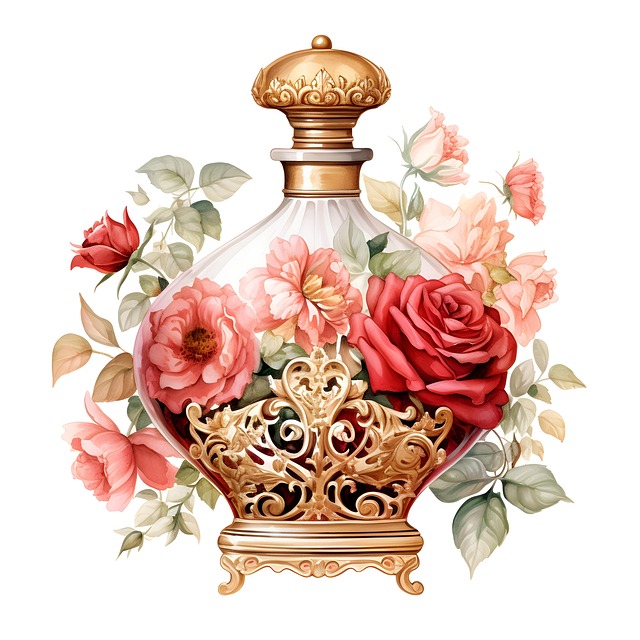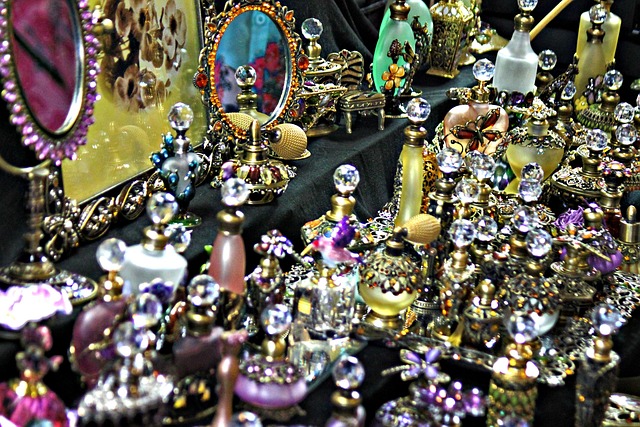Dior Perfume addresses phthalate concerns by offering phthalate-free options, catering to consumer demand for safer, clean fragrance alternatives due to potential health risks associated with synthetic chemicals, specifically phthalates used as fixatives. This shift reflects industry trends towards natural ingredients and enhanced transparency in product formulations.
“Unveiling the safety of fragrances is crucial, especially with concerns surrounding phthalates. This article aims to guide you through the intricate world of perfume ingredients, focusing on the iconic Dior Perfume. We’ll analyze its composition, explore clean fragrance safety standards, and delve into alternatives to phthalates. By understanding potential health risks, consumers can make informed choices. From ingredient transparency to natural options, learn how to navigate the market for safe and healthy scents, ensuring your love for perfume doesn’t come at a cost.”
- Understanding Phthalates in Fragrances
- Dior Perfume: Ingredient List Analysis
- Clean Fragrance Safety Standards
- Potential Health Risks of Phthalates
- Alternatives to Phthalates in Perfumes
- Consumer Awareness and Labeling
- Choosing Safe and Natural Perfumes
Understanding Phthalates in Fragrances

Phthalates are a group of chemicals often used as solvents or fixatives in fragrances, including those found in popular perfumes and colognes like Dior Perfume and Dior Cologne. They help to extend the longevity of scents by enabling the fragrance molecules to bind more strongly to skin and fabrics. However, due to their potential health risks, there’s growing concern about phthalates in personal care products.
These chemicals have been linked to various health issues, including endocrine disruption, reproductive problems, and even developmental delays in children. As a result, many consumers are seeking out cleaner, safer alternatives when it comes to fragrances. When looking for a “phthalate-free” or “clean fragrance,” it’s essential to check product labels carefully and opt for those that explicitly state they do not contain these chemicals. This shift towards safer options is especially prominent in the luxury perfume industry, where brands are increasingly recognizing the demand for Dior Perfume and Dior Cologne alternatives that prioritize consumer health and environmental sustainability.
Dior Perfume: Ingredient List Analysis

Dior, a renowned name in the fashion and fragrance industry, has gained popularity for its elegant and sophisticated scents. When examining their perfume offerings, particularly those marketed as clean and safe alternatives, it’s crucial to dissect the ingredient lists. Many Dior perfumes boast intricate compositions, but some may still contain controversial chemicals, including phthalates. These compounds are often used as fixatives to prolong the scent’s longevity on the skin. However, due to health concerns and potential environmental impact, consumers are increasingly seeking phthalate-free options.
By analyzing specific Dior Perfume formulas, we can uncover whether they adhere to clean fragrance standards. For instance, some of their iconic fragrances may rely on synthetic ingredients that raise red flags. In contrast, the brand has also introduced lines designed with natural and organic notes, positioning them as safer alternatives. Dior Cologne collections, for example, have been developed with a focus on freshness and cleanliness, appealing to those conscious about the chemicals in their personal care products.
Clean Fragrance Safety Standards

Clean fragrance safety standards have emerged as a response to growing consumer concern about the potential health risks associated with synthetic fragrances. These standards focus on phthalates, a group of chemicals often used in perfume and cologne to enhance scent durability. Phthalates have been linked to various health issues, prompting many brands, including high-end labels like Dior Perfume, to adopt phthalate-free practices.
In the case of Dior Cologne, manufacturers strive to create fragrances that not only deliver an exceptional sensory experience but also meet these clean safety standards. By eliminating phthalates and opting for natural alternatives, they ensure that their products are safer for consumers, especially those with sensitive skin or respiratory conditions. This shift towards cleaner formulas is a step in the right direction for the perfume industry, offering customers peace of mind and the assurance that their choice of fragrance aligns with modern safety guidelines.
Potential Health Risks of Phthalates

Phthalates, commonly used in fragrances due to their ability to enhance scent longevity, have been a subject of growing concern for health advocates. These chemical compounds are linked to various potential health risks, particularly when absorbed through the skin or inhaled. Studies suggest that phthalates can disrupt endocrine functions, impacting reproductive systems and potentially leading to developmental issues. Additionally, they may contribute to hormone imbalances, which can have far-reaching effects on overall well-being.
While some brands, like Dior, promote their perfumes as phthalate-free, ensuring clean fragrance safety is a complex matter. The presence of phthalates in popular fragrances like Dior Cologne raises questions about consumer awareness and the regulatory landscape surrounding these chemicals. With growing demand for safer alternatives, the perfume industry is seeing a shift towards natural ingredients, offering consumers more options to make informed choices that align with their values regarding health and environmental impact.
Alternatives to Phthalates in Perfumes

In the quest for safer alternatives, the fragrance industry has seen a rise in demand for phthalate-free options. Phthalates, often used as fixatives to prolong the scent of perfumes and colognes like Dior Perfume and Dior Cologne, have been a topic of concern due to their potential health risks. Many brands are now offering clean fragrances, free from these controversial chemicals.
One popular alternative is using natural compounds and essential oils to mimic the long-lasting effects of phthalates. These ingredients not only provide a more organic scent experience but also offer additional benefits. For instance, some perfumers incorporate plant-based resins and waxes, which not only act as fixatives but also add depth and complexity to the fragrance profile, creating a unique scent journey akin to that found in high-end perfumes like Dior’s iconic creations.
Consumer Awareness and Labeling

In recent years, consumer awareness about the ingredients in personal care products has surged. This shift is largely driven by a growing concern for health and environmental sustainability. As such, many brands are now emphasizing their commitment to creating phthalate-free and clean fragrances. One renowned brand that has responded to this demand is Dior. Known for its exquisite perfumes and colognes, Dior has made significant strides in labeling and marketing its products to ensure transparency. They clearly indicate when a fragrance is free from phthalates and other potentially harmful chemicals, empowering consumers to make informed choices.
For instance, Dior’s popular perfumes like J’Adore and Sauvage now prominently display “Phthalate-Free” on their packaging and labels. Similarly, their colognes, such as Dior Cologne, are marketed with a focus on clean and safe ingredients. This shift not only caters to the increasing demand for transparency but also reflects the brand’s dedication to delivering high-quality products that align with modern consumer values.
Choosing Safe and Natural Perfumes

When it comes to choosing safe and natural perfumes, consumers are increasingly conscious of the ingredients they apply to their skin. Phthalates, a group of chemicals used to increase the longevity of fragrances, have been a point of concern due to potential health risks. Many popular brands, like Dior Perfume, have heeded this call by developing phthalate-free formulas, ensuring their products are gentle on both the skin and the environment.
For those seeking alternatives, Dior Cologne offers a range of options that prioritize clean and safe ingredients. By opting for these natural fragrances, individuals can enjoy the sensory experience without compromising their health. With the growing demand for transparency in beauty products, brands are increasingly focusing on creating perfumes that are not only delightful but also free from potentially harmful substances.






